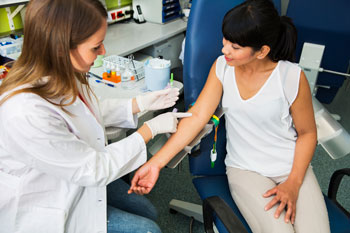What Services Are Covered by Family PACT?

What services are covered by Family PACT?
Family PACT is a program that provides family planning and related services to people who qualify. If you are eligible for Family PACT, you can receive family planning services for free. Family PACT covers the following services:
- Various birth control methods, including long-acting reversible contraceptives, emergency contraception, and sterilization
- Family planning counseling and education
- Sexually transmitted infection (STI) testing & treatment
- HIV testing
- Cervical cancer screening
- Limited fertility services
Family PACT does not cover:
- Emergency room visits, inpatient services or services for pregnant people. Coverage for these services may be available through Medi-Cal.
- You may be able to receive breast health services through Every Woman Counts.
- Health care needs not related to family planning. You may be eligible for other health coverage through Covered California. Watch the video to learn more.

Which birth control method is right for me?
One of the best ways to prevent pregnancy is to use an effective birth control method. There are many methods available through the Family PACT Program. Most birth control methods are safe for most people. Each gives you a different level of protection against pregnancy and STIs.
Not sure which method is right for you? Use this quiz to help you decide, and learn more about covered birth control methods.
How do I prevent sexually transmitted infections?
Sexually transmitted infections (STIs) are infections passed between people when they have sexual contact. Some STIs can be passed without sex by kissing, touching, or rubbing the parts of the body parts where the infection is present.
STIs are very common. But in many cases STIs do not cause symptoms, so people don’t know they have one. The most common STIs can be treated easily and cured. Other STIs cannot be cured, but symptoms can be managed.
Condoms and internal condoms, if used correctly, provide very good protection against STIs. But they must be used correctly every time you have sex. In some rare cases, you can still get STIs, even when you use a condom. The only way to prevent STIs is to abstain from oral, anal, and vaginal contact with a person who has one.


What are the symptoms of STIs?
Many STIs do not have any symptoms, and it is common for people to have an STI and not even know it. If you have an STI, symptoms can include:
- Itching or burning sensation
- Bumps, ulcers, or sores
- Discharge from your vagina or penis
- Pain in your testicles
- Fever
If you are having sex, getting tested may be the only way to be sure you don’t have an STI. Remember, STIs do not always have symptoms, so it’s important to get tested if you are having sex, even if you feel fine. You may want to consider getting tested with your sexual partner(s), if you feel comfortable.
If you do not have an STI, talk with your Family PACT provider about staying healthy and safe.
If you are diagnosed with an STI, your Family PACT provider can talk to you about treatment.
You can learn more about the different types of STIs and how to stay safe here.